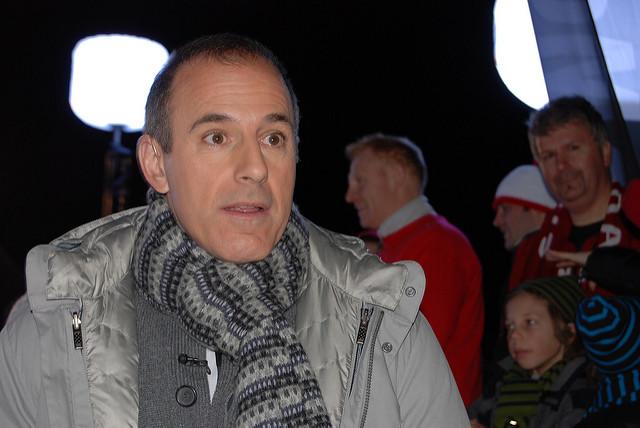Within the past few weeks, a slew of sexual assault allegations captivated the attention of the American public, literally spanning across the nation from politicians in Washington D.C. to entertainment moguls in Hollywood.
Outcry, trials and firings are now becoming more commonplace in a society that is just beginning to understand the full impact that sexual assault has on the associations of the accused, and the wellbeing of the survivor. Though men are often survivors of sexual assault, unfortunately, this receives very little attention since most of the recent allegations involve women being targetted by men.
Statistically, these are the most prevalent situations, both in greater society and on campus. According to It’s On Us, a national movement to end sexual assault, female students are more than four times as likely to be raped or sexually assaulted than male students. Now, the perpetrators are not inebriated frat boys or a seedy school janitor — they are men in respected industries, with different outlooks, backgrounds and values, bound by the common thread of their sexual misconduct.
Whether it be on the evening news, the trending story on twitter or hot gossip at a coffee shop, the outpour of allegations are causing men to have a conversation that many are not ready or simply refuse to have — what is the true nature of the male libido?
The common stereotype is men have a natural inclination to crave sex, whether it be consciously or unconsciously. Freud describes it through the “Id,” the part of the personality that he calls “chaos, a cauldron full of seething excitations … [It is] the great reservoir of libido.” This idea is obviously fraught with generalization, but if anything, the events of the last few weeks seem to support its accuracy. Though we know better than to think this is true, why are men not acting on that?
Societal expectations prompt men to act this way. From a very young age, we are taught to fear the male libido, in the form of subtext from our favorite stories. The Big Bad Wolf pursuing Little Red Riding Hood, or Sleeping Beauty being kissed awake all have blatantly sexual, yet non-consensual undertones. Children are terrified of werewolves, creatures that turn into insatiable beasts, and vampires that slip into your house in the middle of the night to satisfy their lust for human blood.
Stories like these are so ingrained in our culture that it provides us with a subconscious expectation for men to be sex-crazed heathens, and women to be the meek victims. Both of those tropes are stereotypes, but ones we see more frequently. We know little about the true nature of male sexuality because of a lack of conversation and education on the reasons behind the roles and actions of sexual assault perpetrators caused by societal expectations that we have been consuming since childhood. To break the stigma against male hypermasculinity, we need to learn about why it exists, and how to curtail it.
Education about these choices is the key to preventing future sexual assaults. For men, education on sexuality is abysmal. Sex education in middle or high school is more focused on pregnancy prevention, sexually transmitted diseases, or outright abstinence rather than consent or sexual health, a major disservice to all genders. After a lackluster education, men are then thrust into a society replete with expectations — be strong, be aggressive, do not be vulnerable, solve problems on your own.
A dialogue with other men on anything remotely related to sexuality is taboo. Because of this, our culture is having a large-scale public conversation on the sexual misconduct of men, without touching on the nature of male sexuality. We focus on the aftermath of assault, rather than determining why the assault takes place in the first place. We repress our urge to know and to understand, rather than face an ugly truth. Female survivors wish to share their experiences and have their voices heard, a completely valid desire, and many men run to their beck and call. This shifts the spotlight from their role in perpetuating this culture and the misunderstanding of their sexual practices.
Survivor stories often drive the conversation on sexual assault forward, but focusing on only one side of the story does nothing for prevention. The dialogue on sexual assault prevention must acknowledge the lack of understanding of the male sexuality, and begin to mend it.
An artists work should never be separated from their actions off screen
A constructive discussion by men on changing sexual norms would be beneficial for preventing sexual assaults, but it simply does not happen. Societal implications from childhood, education or lack thereof, may be explanations for the abominable behavior, but they are not excuses. Immersing ourselves in the suffering of survivors is important yet not the sole solution, for there is no way that healthy sexuality can occur in a culture where the roles of men and women regarding sexual relations are not understood equally.
This sympathy is not meant to reduce or demean the experiences of sexual assault survivors — who know strength some of us will never understand — but to popularize the idea that masculinity and the dangers and misconceptions surrounding hypermasculinity is a relevant topic that is just as worthy of discussion as the experiences of survivors. All parts of male sexuality — the good, the bad and the ugly, are subjects worth talking about to prevent future sexual assaults.
Abby Steinberg ([email protected]) is a freshman majoring in political science and intending to major in journalism.





















